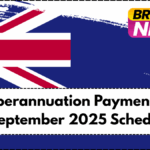The KiwiSaver withdrawal rules 2025 have introduced new clarity and structure to early access criteria for New Zealanders seeking to tap into their retirement savings ahead of the usual retirement age. As life circumstances evolve, KiwiSaver continues to adapt its guidelines to ensure those in genuine need can receive support while maintaining the program’s long-term viability.
KiwiSaver is a voluntary, work-based savings initiative designed to help New Zealanders save for retirement. However, there are defined instances where individuals can apply to withdraw their savings early. The updated 2025 rules reinforce fair and transparent access for eligible applicants, offering new insights into how and when such withdrawals can be made.
This article explores the early withdrawal options available in 2025, who qualifies under the updated criteria, the required documents, and how early access might affect your overall NZ pension and retirement fund planning.

When Can You Access KiwiSaver Early in 2025?
As per the KiwiSaver withdrawal rules 2025, early access is only granted under specific, tightly regulated scenarios. These are in place to prevent misuse while helping those in need. If you are planning to apply, you must fall under one of the following categories:
-
Financial hardship – where you are unable to meet essential living costs
-
Severe illness – a condition that permanently affects your ability to work
-
Permanent emigration – if you are moving overseas (excluding Australia)
-
First home purchase – if you are buying your first property
-
Life-shortening congenital condition – genetic conditions that significantly reduce life expectancy
These criteria remain mostly consistent with previous years, but the 2025 update has tightened documentation requirements and added more consistency across providers, ensuring fairness across all KiwiSaver 2025 applications.
Documentation Required for Early Withdrawal
Each early withdrawal category requires specific documents to support the application. Here is a table summarizing what is needed based on your withdrawal reason:
| Withdrawal Reason | Eligibility in 2025 | Key Documentation Required |
|---|---|---|
| Financial Hardship | Yes | Proof of income, expenses, overdue bills, and debt statements |
| Severe Illness | Yes | Specialist medical reports, diagnosis confirmation |
| Permanent Emigration (except Australia) | Yes | Passport, proof of residence abroad, visa or immigration details |
| First Home Purchase | Yes | Signed sale and purchase agreement, letter from solicitor |
| Life-shortening Congenital Condition | Yes | Certified diagnosis, medical history, supporting statements |
It’s important to prepare all required documents in advance to avoid delays in processing your application.
How the Early Withdrawal Process Works in 2025
Under the KiwiSaver withdrawal rules 2025, the process to apply for an early withdrawal is structured and user-friendly, but it still requires accuracy and compliance with submission guidelines:
-
Contact your KiwiSaver provider to request the appropriate withdrawal form.
-
Fill out the form completely and choose the reason for your early withdrawal.
-
Attach supporting documents based on your withdrawal reason.
-
Submit the application and wait for your provider to assess your eligibility.
-
Receive a decision within 10 to 15 business days depending on your provider’s process.
Applicants should ensure that all information is true and that no section is left incomplete. Missing or incorrect documentation can result in rejection or delay of the withdrawal.
Long-Term Implications of Early Withdrawals
While it might be necessary in some cases, withdrawing your KiwiSaver funds early can significantly impact your retirement fund. You may reduce the power of compounding interest and lower the government and employer contributions you receive over time.
Here are a few long-term implications to consider:
-
You may fall short of your intended retirement savings goal.
-
Your financial independence after retirement could be compromised.
-
Rebuilding your KiwiSaver fund can take several years, especially if you’re not making regular contributions.
Financial advisors generally recommend withdrawing early only when absolutely necessary, particularly in the case of KiwiSaver 2025 members under age 55.
Conclusion
The KiwiSaver withdrawal rules 2025 offer a clear and structured pathway for early access to retirement savings, balancing the needs of individuals with the purpose of the program. Whether you’re facing hardship, serious illness, or buying your first home, KiwiSaver provides support—but only when genuine need is proven.
Understanding the criteria and ensuring that all supporting documents are properly submitted can make the process smoother. While early access might provide short-term relief, consider the long-term implications on your NZ pension and retirement lifestyle. Plan wisely and consult professionals if needed before accessing your retirement fund early.
Frequently Asked Questions
What are the early access conditions under KiwiSaver withdrawal rules 2025?
You can access your KiwiSaver early in 2025 if you face financial hardship, severe illness, are purchasing a first home, emigrating permanently (except to Australia), or have a life-shortening congenital condition.
Can I withdraw KiwiSaver if I’m moving to Australia?
No. KiwiSaver funds are not eligible for withdrawal when moving to Australia. However, they can be transferred to an Australian superannuation fund under the Trans-Tasman portability agreement.
How long does the KiwiSaver withdrawal process take?
It typically takes 10 to 15 working days for your KiwiSaver provider to review and process your early withdrawal application, assuming all documents are complete and accurate.
Will early withdrawal reduce my retirement benefits?
Yes. Withdrawing early means you’ll lose potential interest and future contributions, which may reduce your total retirement fund at retirement age.
Is medical evidence required for early access due to illness?
Yes. You’ll need certified medical documentation confirming the illness and its impact on your ability to work or life expectancy, depending on your claim type.
Click here to learn more



